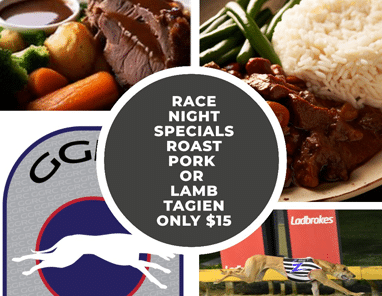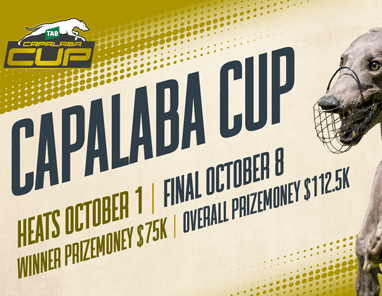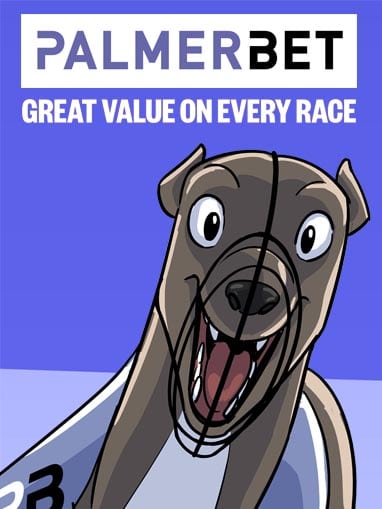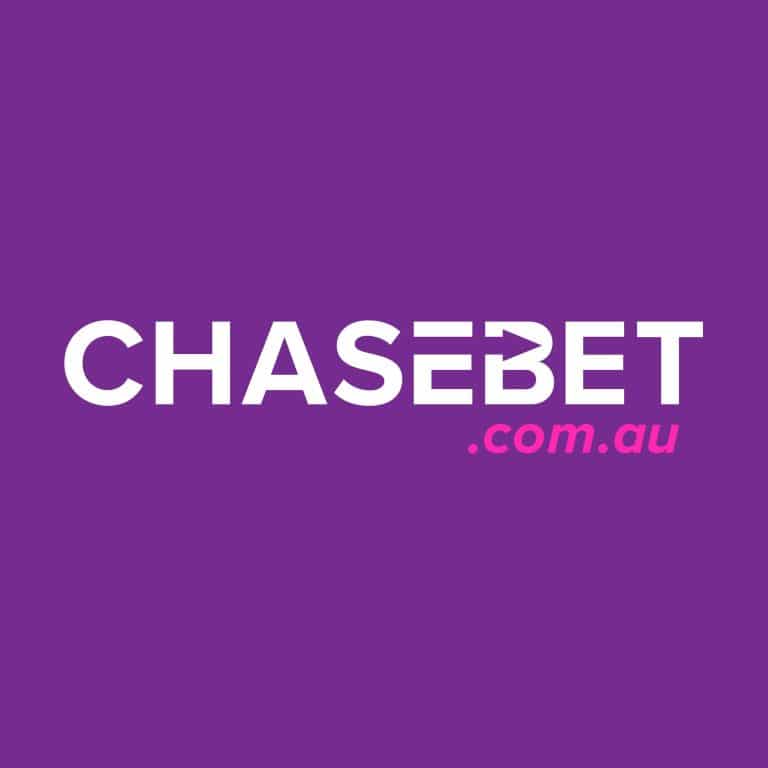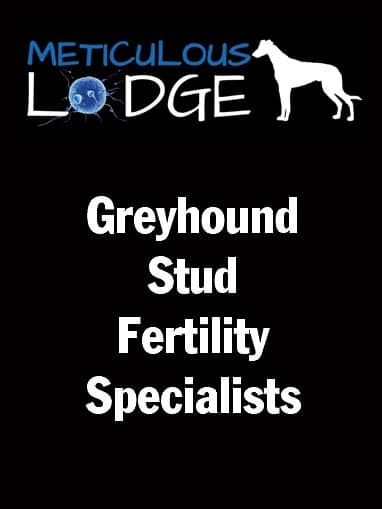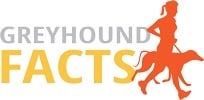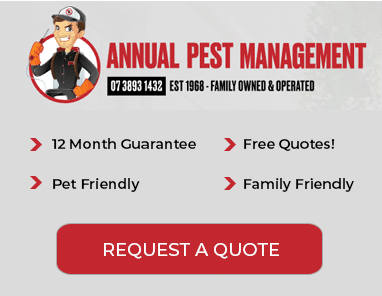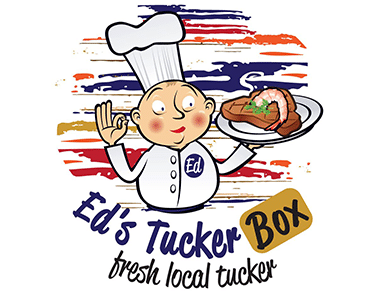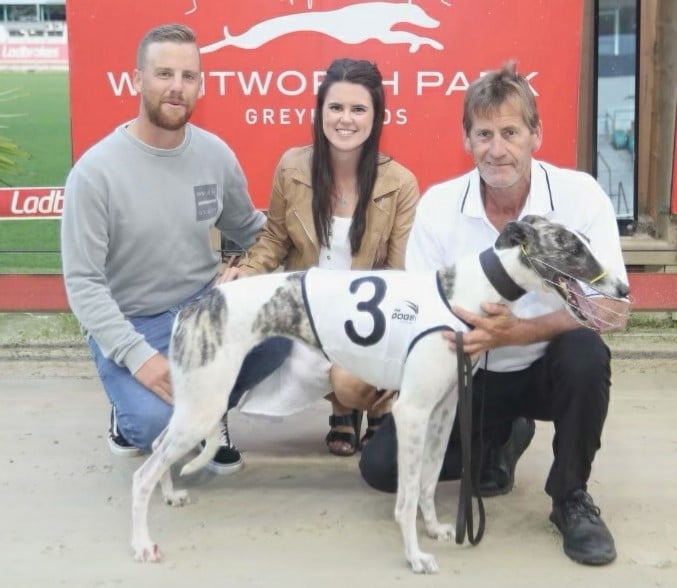
Caption: Tayt Corless, Grace Cole and Andrew Bell with Fence Lady
By TAYT CORLESS
MY introduction to racing was a natural considering so many
members of my family have been involved in various forms of the industry over
many decades.
My grandfather Des Corless was the chief harness racing
writer at the old Sydney Sun and his father before him was involved in racing
as well. My dad Greg trained a few dogs many years ago winning a few races
around country tracks, but before I was born.
One of my uncles also had thoroughbreds.
Right from the time I was young, I always had an interest in
racing but I’m so pleased greyhound racing won me over.
I soon found out greyhound racing is such an affordable
option to get into. Horses are 10-fold the cost of greyhounds and horse owners
do not have much control over what is done with their horses.
This is completely different to what I have found in
greyhound racing.
My introduction was via a mate who had owned a dog, but had
a bad initial experience. A bunch of mates and myself were sitting around one
day and decided to ‘get a greyhound’. We named our syndicate Cognac and Cigars
and bought a dog called Tilted Towers, gave him to John Chapman to train and he
started winning. At his 100th start he won for us as well.
It was the start that gave me a lure into a hands-on entry
into greyhound racing and also got my dad back into the sport.
I bought a few cheap pups and gave them to Andrew Bell near
The Oaks to rear and then train. Dad immediately started heading out to
Andrew’s kennels to help out.
That initial interest kept going to the stage where I now
have 12 dogs and my partner Grace Cole and I have rented a property at
Berkshire Perk not far from Richmond track with the purpose of training
ourselves.
I’m now 31 and have been in the construction business for 13
years, mainly scaffolding, running my own business which allows me to give
greyhound racing a good try myself.
My initial introduction was all about learning just what
training is about.
I have to say it is a bit daunting at first because it
involves aspects of the preparation of greyhounds of which I had no idea.
But, constantly talking to and helping out trainers is the
best way to learn. And, I’ve realised you never stop learning.
One thing I did learn quickly is that greyhounds certainly
get treated better than any other breed of dog.
But, I also saw very quickly the negativity towards the
industry from outsiders. They figure it is cruel, but since I have started
training my own dogs, I can vouch for the fact they love to run, love to race.
The toughest thing about training is making sure you do
everything right. That means routine, routine, routine – getting their weight
right, the strict diets, and making sure the dogs settle into the kennel set-up
and don’t cause problems for neighbours.
The greatest asset training greyhounds is, no matter how bad
your day has been, during lockdown or during work, they are always happy to see
you every morning, afternoon and night.
My introduction to handling dogs on race day came through
Andrew Bell and it too was daunting.
But, once you’ve done it a few times, you realise it is a
great experience.
Yes, greyhound training is time-consuming, but the more you
invest the better the outcome.
It is a much more different experience training your own
dogs to just being an owner.
Grace has been fantastic, embracing the dogs and helping out
with them all the time. Dad too is on board and our little community works
together to keep them going.
We have three kennels at home and I immediately formed the
opinion giveaways were not my thing. I’m originally looking for TAB dogs and
have already set plans in motion for breeding down the track with a Wentworth
Park winner I own.


